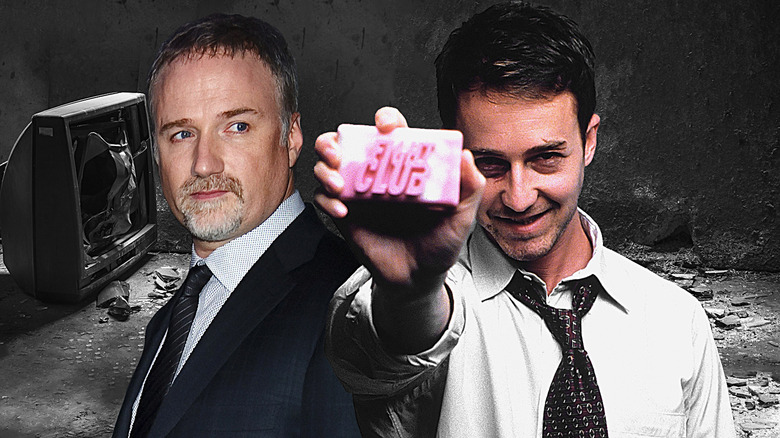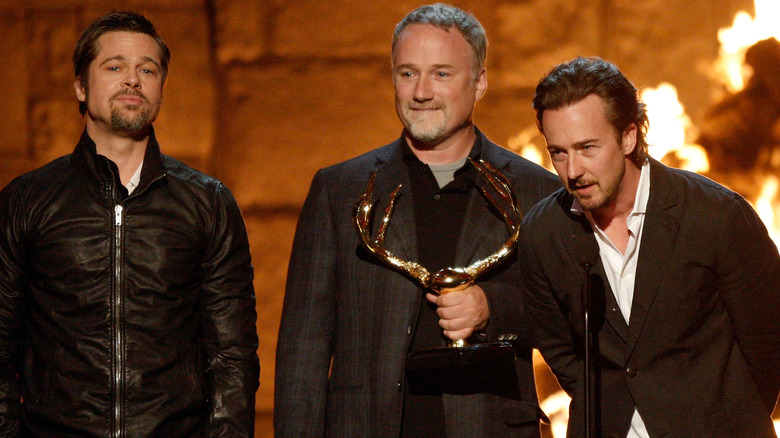David Fincher Refuses To Watch Fight Club Again - Here's Why
It's difficult to deny the impact that the quintessential '90s film "Fight Club" has had on cinema. Yes, the movie is controversial for its subject matter, but it's also one of the most prominent projects from that era, widely referenced for its talking points on masculinity, consumerism, and violence. Head-scratching even at the time of its release, David Fincher's 1999 film, based on author Chuck Palahniuk's novel of the same name, is either something you love or hate. Even notable film critic Roger Ebert suggested this in his 2-star review, writing that the Brad Pitt-led film "is a thrill ride masquerading as philosophy — the kind of ride where some people puke and others can't wait to get on again."
The film obviously continues to be revisited to this day, but Fincher apparently has no interest in watching it again, despite it being arguably his most popular work. While speaking with GQ in late 2023, Fincher revealed that he hadn't seen the thriller in 20 years and that he had no plans to change that. When asked if he has an aversion to watching his older films, the director gave a rather candid answer. "No— yes. It's like looking at your grade school pictures, or something. Yeah, I was there,'" he said.
It's sort of ironic that David Fincher has no interest in revisiting "Fight Club," considering how hard he fought to get it made. While the film has topped a number of Best of '90s lists, "Fight Club" wasn't an immediate success. Now, the project is an absolute cult classic — but that doesn't necessarily mean the director is proud of the film's legacy.
David Fincher says he's not responsible for the toxicity surrounding Fight Club
Director David Fincher may have avoided revisiting "Fight Club" over the last 20 years, but thousands of fans have done that and more, turning the psychological thriller into a personality trait. In recent years, "Fight Club" — which follows a young man (Edward Norton) forming a relationship with the mysterious Tyler Durden (Brad Pitt) — has become associated with various right-wing and extremist movements, which view Durden as a messianic figure of sorts. With so much negativity surrounding the film, it makes sense why Fincher has a sort of aversion to watching it after it's become a symbolic figure of toxicity.
When asked about how he feels about "Fight Club" emerging as a key text for several controversial groups, Fincher simply stated that it's not his problem. "I'm not responsible for how people interpret things," the director recently told The Guardian. He continued by explaining that he didn't make the film for those groups and communities, suggesting that it's not his responsibility to spell things out for them. "It's impossible for me to imagine that people don't understand that Tyler Durden is a negative influence," Fincher said. "People who can't understand that, I don't know how to respond and I don't know how to help them." Seeing as he hasn't seen the film in decades, it stands to reason that the director really doesn't feel comfortable engaging with the discourse surrounding the project.

